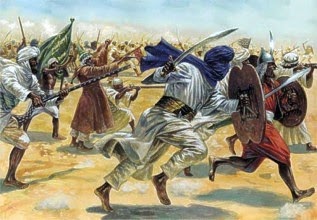THE DOCTRINE OF NECESSITIES: WHEN JUDICIARY HIJACKED DEMOCRACY
OVERVIEW
There have been many landmark cases through the decades in which court decisions have gone on to change the course of Pakistan’s history. These include the recent Panama Case, The hanging of Zulfikar Ali Bhutto in a murder case; Maulvi Tameezuddin case; and the Swiss letter case which led to the removal of Yousaf Raza Gilani from the office of the prime minister as well as the Asghar Khan case in which the Supreme Court found that intelligence agencies were involved in election rigging in 1990s.
Maulvi Tamizuddin Khan, president of the first Constituent Assembly of Pakistan, approached the Singh High Court after the then governor general Ghulam Mohammad had dissolved the assembly. Chief Justice Sir George Constantine of the SHC accepted the petition and restored the assembly.
However, Ghulam Mohammad filed an appeal in the then Federal Court and Chief Justice Mohammad Munir had upheld the dissolution of the assembly on technical grounds and ruled in favour of the governor general.
That decision changed Pakistani politics forever and people started viewing the judiciary with distrust believing that any head of the state would always expect the superior judiciary to side with him in any confrontation with parliament.
THE PLOT
Munir manipulated the constitution of the bench in the Maulvi Tamizuddin case to bring about Ghulam Muhammad’s desired outcome. Apparently, Munir foresaw Cornelius’s minority dissent and apprehended that Shahabuddin or Akram might join him. That would turn Munir’s majority into a minority. To forestall this possibility, Munir asked Ghulam Muhammad to remove Shahabuddin from the bench by appointing him governor of East Pakistan and fill the vacancy with a more pliable ad-hoc judge. Ghulam Muhammad obliged and Munir successfully cobbled together a 4-1 majority judgement.
THE Justice Cornelius insight:
Cornelius’s insights into the workings of Munir’s mind. Apparently, Munir would boast of his ability to write two judgements in a criminal case — one for conviction and one for acquittal— both equally convincing and legally correct. He also termed the law as an instrument to be used by the judge to reach his desired result. Hardly surprising, then, that this fertile and flexible mind was responsible for introducing the “doctrine of necessity” and the “doctrine of legitimacy of a successful revolution” in the legal lexicon of Pakistan. These treacherous weeds took firm hold in the minds of weak judges over the next 60 years and were used again and again to justify military coups.
THE MASTERY TURNED CURSE: What is Theory of Necessities?
In modern times, the doctrine was first used in a controversial 1954 judgment in which Pakistani Chief Justice Muhammad Munir validated the extra-constitutional use of emergency powers by Governor General, Ghulam Mohammad.In his judgment, the Chief Justice cited Bracton's maxim, 'that which is otherwise not lawful is made lawful by necessity', thereby providing the label that would come to be attached to the judgment and the doctrine that it was establishing.
The Doctrine of Necessity has since been applied in a number of Commonwealth countries, and in 2010 was invoked to justify extra-legal actions in Nigeria.
THE Aftermath:
At the appellate stage of the Maulvi Tamizuddin Khan case, the governor general and his cronies maneuvered the composition of the bench and the judgment it delivered swept away the entire democratic structure of the state. The doctrine of necessity was introduced in the governor general’s reference of 1952 which was followed by the subsequent benches of Supreme Court in the Yusuf Petel case, Doso case, Nusrat Bhutto case and Zafar Ali Shah case.
"Justice A. R. Cornelius was the sole dissenting judge in the landmark judgment handed down by the Supreme Court in the Maulvi Tamizuddin case. That judgment altered the course of politics in Pakistan forever and sealed the fate of democracy. The law had guided him as he had interpreted it and his conscience.
SOURCES:
https://www.dawn.com/news/1027853




This comment has been removed by the author.
ReplyDelete